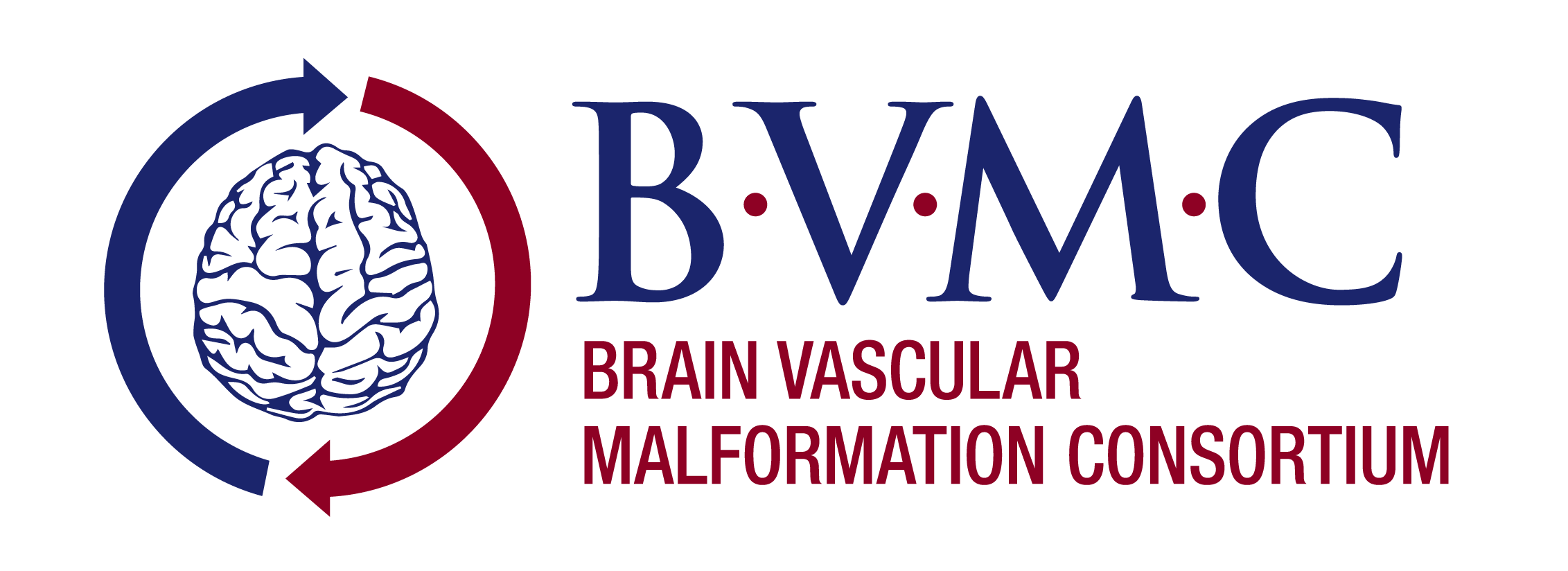Research Studies
How do I learn more about current open studies?
Below you will find a list of current studies. Clicking on the link will take you to the study summary, which will provide you with all the important details for each study.
How do I participate in a study?
Each study summary provides a list of hospitals or clinics where the study is being run. Using the contact information provided, you may contact any of these facilities in order to request participation in a study.
Showing All Ongoing BVMC Studies
Closed to Recruiting
6201: Modifiers of Disease Severity and Progression in Cerebral Cavernous Malformation
This project is focused on identification of modifiers of disease severity and progression in patients with familial cerebral cavernous malformation (FCCM), with the overall goal of identifying measurable outcomes and robust biomarkers that will help select high-risk patients and help monitor drug response in clinical trials.
6203: Cerebral Hemorrhage Risk in Hereditary Hemorrhagic Telangiectasia
To identify predictors of brain outcomes in HHT patients. We propose to leverage our multicenter network of HHT Centers to characterize comprehensive brain outcomes. We hypothesize that the presence of BAVMs (vs. HHT patients without BAVMs) and multiplicity of BAVMs will be associated with worsening functional outcome. We will use the modified Rankin Score (mRS) to measure the functional outcome. Furthermore to define a severe bleeding phenotype in HHT for clinical trial readiness. We hypothesize that weekly nasal bleeding duration (Patient-Reported Outcome Cumulative nasal Bleeding duration, or PRO-CB) in HHT will predict the need for invasive or life-sustaining therapies (surgery, urgent packing, blood transfusions, iron infusions). We propose to measure PRO-CB longitudinally in HHT patients and correlate with the need for invasive or life-sustaining therapies (primary outcome), as well as with ICH risk from BAVMs and with bleeding in other HHT organ phenotypes (including pulmonary AVMs and GI telangiectasia).
6211: Integrated Longitudinal Studies to Identify Biomarkers and Therapeutic Strategies for Sturge-Weber Syndrome
The objective is to integrate longitudinal clinical data, radiological data, and blood biomarkers of SWS patients to identify those at most risk to have severe neurological symptoms and to identify potential treatments (Aim 1). We will identify plasma and imaging biomarkers sensitive to exacerbation of clinical symptoms including seizures, headaches, or stroke-like episodes that may indicate disease progression and correlate with severe neurological symptoms (Aim 2). Finally, for enrolled patients who present with severe neurological symptoms blood samples will be screened for inflammatory changes by comparing plasma collected at baseline, during, and after the severe symptoms to identify predictive biomarkers for clinical trials (Aim 3).
6214: Sirolimus for Nosebleeds in HHT: A Phase II Pilot Study
This pilot study is to determine the safety and efficacy of oral sirolimus (blood trough level 6-10ng/ml) in patients with HHT that are experiencing moderate or severe epistaxis. The effect of oral sirolimus on epistaxis will be compared to baseline using the Patient-Reported Outcome of cumulative weekly nose Bleeding Duration (PRO-CB). The PRO-CB association with biomarker variability over the duration of the study will be investigated. In the pilot study subjects will be treated with 2mg of sirolimus once daily to obtain a trough level of 6-10ng/ml for 3 months.

